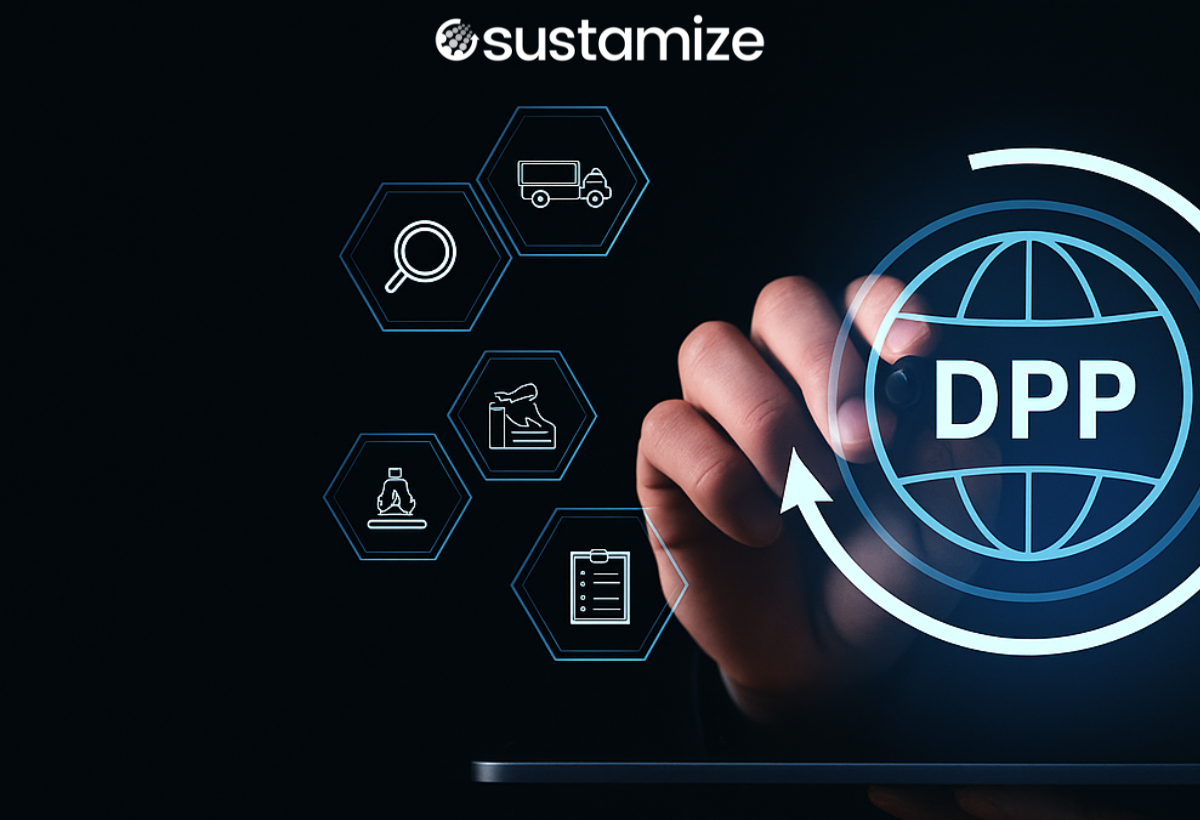
Harshraj Singh Kothari
Dec 2, 2025
sustamize data powering transparent, compliant, and sustainable products.

Under the EU’s Eco-design for Sustainable Products Regulation (ESPR), the Digital Product Passport (DPP) will be introduced: a centralized, EU-regulated digital identity for products, components, and materials that stores verified sustainability data, carbon footprint information, and supply chain transparency details to support compliance and circular economy goals.
This information will be accessible electronically, making it easier for consumers, manufacturers, and authorities to make more informed decisions related to sustainability, circularity and regulatory compliance. It will also allow custom authorities to perform automatic checks on the existence and authenticity of the DPPs of imported products:
The European Green Deal and the Eco-design for Sustainable Products Regulation (ESPR) are pushing industries toward more circular, resource-efficient, and transparent product systems. These regulations aim to reduce environmental impact throughout a product’s entire life cycle from material sourcing to disposal.
According to the EU Commission, the implementation of product passports was started in 2024, with product-specific rules introduced through delegated acts. The ultimate goal is to enable sustainable and circular product design for all regulated products by 2030. Companies must prove product sustainability, demonstrate ethical sourcing practices, and ensure compliance with evolving EU regulations.
The Digital Product Passport is not just a regulatory requirement, it is a powerful business tool that drives efficiency, sustainability, and customer trust. Business Benefits of the EU Digital Product Passport for Compliance, Supply Chain Visibility, and Sustainability:
A pilot project under the EU-funded CIRPASS initiative demonstrated how early adoption of Digital Product Passports (DPPs) can significantly support circular economy goals in the electronics sector. One participating European electronics company reported notable improvements, including:
This early success highlights the practical value of DPPs not only for regulatory compliance, but also for optimizing operations and strengthening market reputation.
At sustamize, we make Digital Product Passport implementation seamless by offering:
Explore our sustamize documentation to see how our data and tools help you tackle Scope 3 emissions and streamline workflows.
👉 Contact sustamize, your trusted EU Digital Product Passport data provider to learn how our verified sustainability and supply chain data solutions can help you achieve compliance and accelerate your circular economy strategy. Schedule your free consultation today.